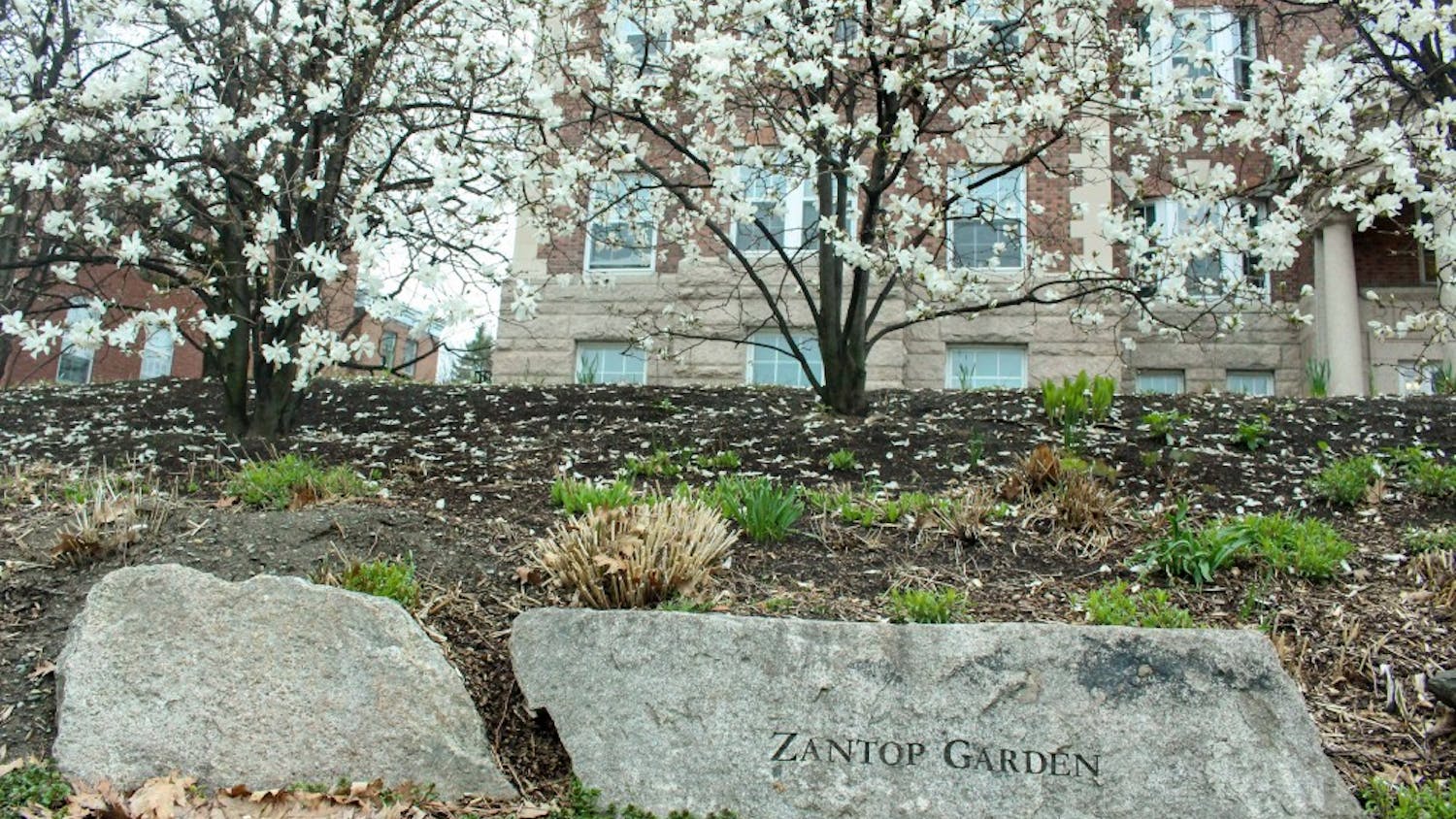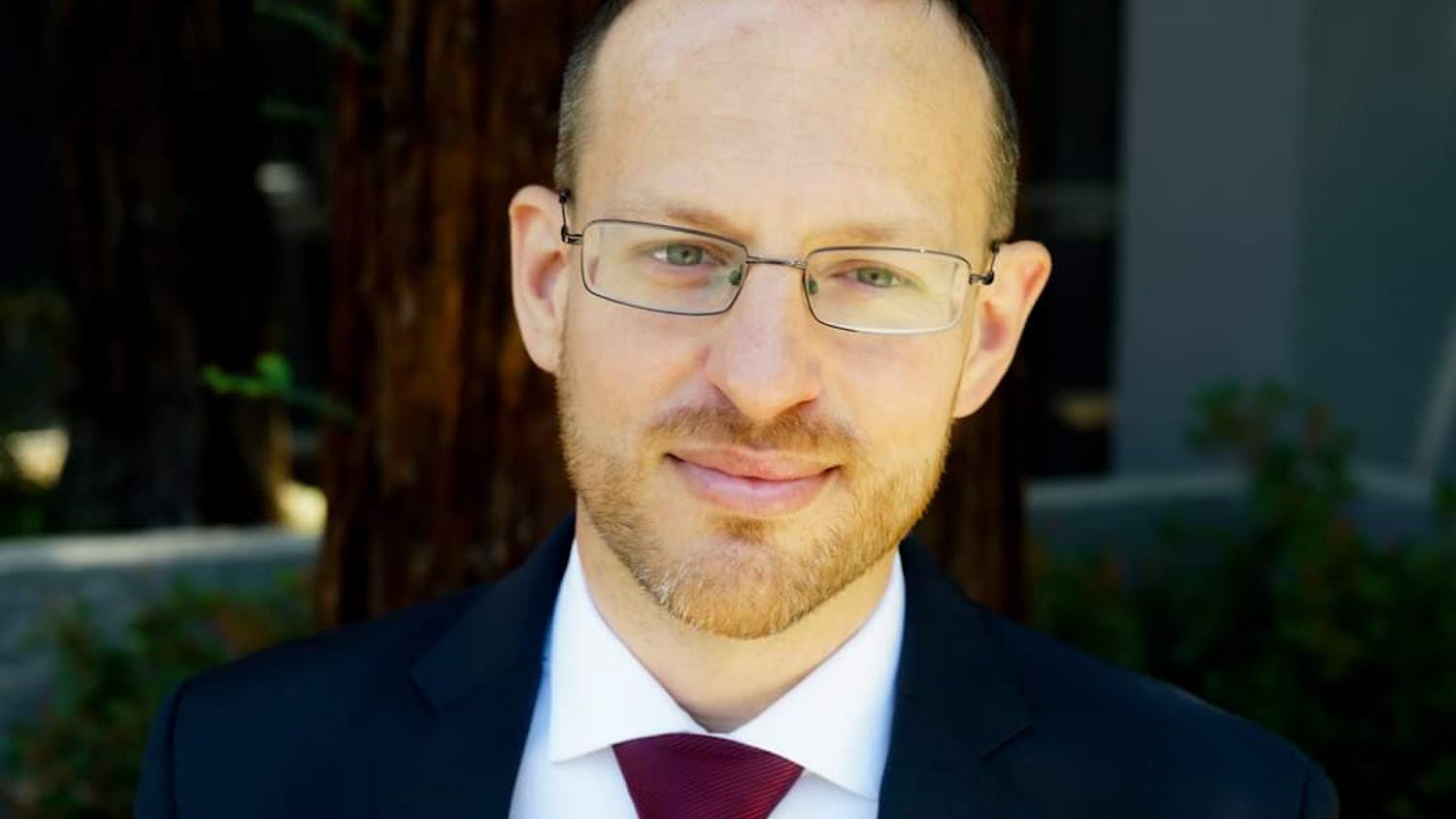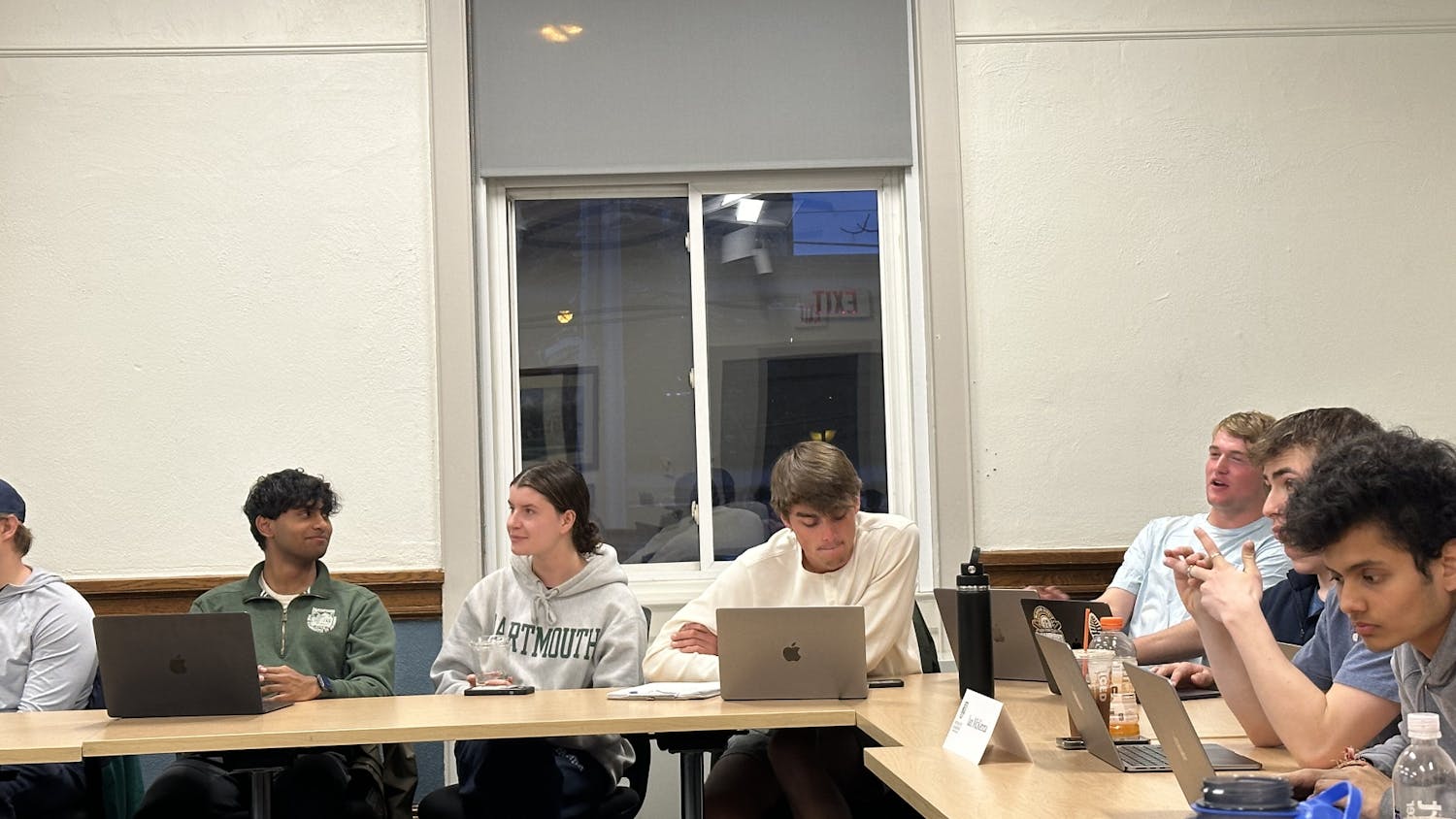Sometime this week, five people will sit clustered together in the Church of Christ building at 40 College Street at a weekly meeting they jokingly refer to as “Bible study,” because of its location. Religion, however, is not the topic of conversation — instead they will discuss everything from the difficulties of publishing in journals to the Democratic primary debate.
These five comprise the inaugural class of the College’s Society of Fellows, a unique group of recent Ph.D.s who have come to the College both to pursue research and gain teaching experience.
The society, modeled after similar programs at other Ivy League institutions, was first announced by College President Phil Hanlon during his inaugural address in 2013. The fellowship is a three-year paid program through which recent Ph.D.s can continue to pursue their research and gain exposure to teaching through training and lecturer positions at the College.
Religion professor Randall Balmer, who spearheaded the program, began by assembling a group of professors who would serve as senior fellows and mentors to the incoming class. These senior fellows served on a committee to review applications for junior fellows — the five people who partake in “Bible study.”
English professor Donald Pease, one of the committee’s seven senior fellows, explained that the junior fellows can help foster collaboration between the College’s various departments, which he said can sometimes become sequestered.
“The Society exists to foster intellectual engagement between faculty and postdoctoral scholars that bridge departments and programs,” Pease said.
Pease and Balmer said they received 1,750 applications for the five available spots in the program last year. Since all who were admitted to the College’s Society of Fellows accepted the positions, that marks a 0.3 percent admit rate. Balmer said that although he was somewhat surprised at such a large number of applicants, he expected a high level of interest and response. Balmer said in the future he hopes to expand the program and have several dozen fellows at any given time.
The five fellows comes from a vast range of backgrounds and interdisciplinary focuses of research.
Fellow Bess Koffman currently works in the earth sciences department. Her research focuses on historical climate change through the examination of continuous records of dust and other chemicals deposited on snow and ice.
Although Koffman is currently focusing on her research and lab work, she will be teaching “Meteorology” in the spring.
Koffman said she particularly enjoys the defining role that she and her peers play in being the first cohort of fellows.
Koffman said the fellowship appealed to her for its particular blend of research and teaching.
“Unlike most postdoctoral fellowships, which are just research-based, this one provided a good balance. It provides an exciting opportunity to engage in research and at the same time, develop myself as a teacher,” Koffman said.
Fellow Caitano da Silva, who received his Ph.D. in physics at Pennsylvania State University, expressed a similar sentiment about his motivation for applying for the Society of Fellows.
“This position is a unique one for a recent Ph.D. graduate, in that it involves a teaching commitment as well as giving them some freedom to pursue research of his or her interests,” da Silva said.
Da Silva, stationed in the physics department, conducts research on the radiation produced by thunderstorms. He shadows physics professor Mary Hudson as she teaches “Introductory Plasma Physics,” which he will teach alone next year.
Da Silva said he especially enjoys the constant intellectual interactions he has as a fellow. He said these collaborative opportunities are rarer in most postdoctoral positions, where people often spend the majority of their time working in a lab.
Fellow Kate Kindervater, who has a Ph.D. in geography, spoke similarly of the program’s benefits. She said her favorite part of the fellowship has been meeting the other fellows and learning about interdisciplinary research outside of her own field.
“We have really different research interests, but it’s been a really exciting opportunity to talk with people that are far outside your own field,” Kindervater said.
In the geography department, Kindervater’s research is centered around Western violence and its history, with an emphasis on drone technology. Although the specific classes she will teach have not yet been finalized, Kindervater will instruct courses this summer and next year.
Kindervater’s research — which touches upon issues in geography, history, security studies and the history of science and technology — is interdisciplinary, but Pease said this is typical of the fellows.
“They’re all pursuing cutting-edge research in their own areas of inquiry, but it’s primarily interdisciplinary,” Pease said.
Fellow Yvonne Kwan’s research on the transgenerational transmission of trauma in the children of the Cambodian genocide’s victims likewise spans a number of disciplines, including sociology, history and ethics.
Originally from the greater Los Angeles area, Kwan earned her Ph.D. last spring at the University of California at Santa Cruz. Kwan, who will teach “Constructing Social Theory” this spring, said one of her favorite aspects of the fellowship is having access to undergraduate students. She said undergraduates offer a broader perspective on material that can help Fellows to contextualize their research.
“Sometimes our research can seem myopic,” Kwan said. “But when others who are engaging don’t have the level of expertise, it challenges you to think in a broader way to conceptualize things that aren’t just relevant to you and a small group of people.”
Balmer said that he enjoys having the Fellows on campus because they also expose the faculty to new perspectives. Doctoral students, he said, constantly challenge older faculty to stay current in their field — without them, faculty may be tempted to relax.“Young people bring energy, enthusiasm and a conversance with their fields that for some of us is difficult to sustain as you get older,” Balmer said.
Fellow Vanessa Freije, who earned her history Ph.D. from Duke University and now conducts research examining the history of political scandals under one-party rule in Mexico, said she feels connected to people across campus.
“I’ve found it to be very easy to make intellectual connections across campus. There’s a lot of energy to have discussions with people working on very different things,” Freije said.
Freije is the only Fellow who will not teach a course while at the College, because she has a tenure-track position lined up at the University of Washington.
Balmer said that he has made recent visits to both Harvard and Princeton Universities to study their respective Societies of Fellows and draw from his observations to determine what strategies and models would work best for the College.
He said there are a few distinct differences between the College and these other models — most notably, the College does not have large graduate programs.
Balmer said, however, he does not think this difference is “debilitating” — just worthy of consideration. He also noted that postdoctoral students who come to Hanover will not have the same cohort of peers as Fellows at other schools.
Balmer and Pease said that although the society is too nascent to measure its influence, they point to the accomplished Fellows as evidence of its success thus far.
“I hope the presence of young, enthusiastic, energetic, intelligent scholars here on campus will have a leavening effect through the College, both on undergraduates and older faculty,” Balmer said.



